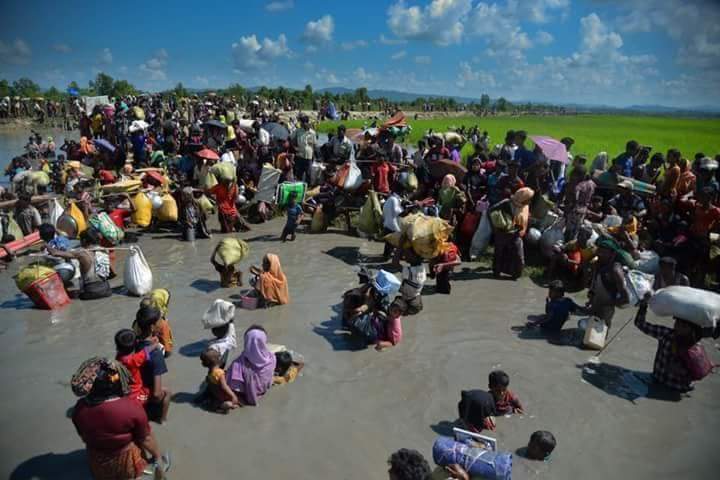Bangladesh asked to stop repatriation due to 'terror and panic' among Rohingyas

- Country:
- Bangladesh
UN High Commissioner for Human Rights Michelle Bachelet Tuesday asked Bangladesh to halt plans for the repatriation of more than 2,200 Rohingya refugees to Myanmar, warning that forcibly returning them to their home country would be in violation of international law and put their lives and freedom at serious risk.
The UN Human Rights Office said in a statement that the refugees in Bangladesh's Cox's Bazar are the victims of human rights violations committed in the midst of the violence that erupted in August 2017.
The violence led to more than 725,000 people fleeing the area.
The statement said that refugees have stated repeatedly that they do not wish to return under current conditions. Several of the refugee families apparently listed for return are headed by women or children.
"We are witnessing terror and panic among those Rohingya refugees in Cox’s Bazar who are at imminent risk of being returned to Myanmar against their will," Bachelet said.
"Forcibly expelling or returning refugees and asylum seekers to their home country would be a clear violation of the core legal principle of non-refoulement, which forbids repatriation where there are threats of persecution or serious risks to the life and physical integrity or liberty of the individuals."
She said the human rights violations committed against the Rohingya in Myanmar amount to the "worst atrocities, including crimes against humanity and possibly even genocide."
The top human rights official said with an almost complete lack of accountability, with ongoing violations, "returning Rohingya refugees to Myanmar at this point effectively means throwing them back into the cycle of human rights violations that this community has been suffering for decades."
She appealed to the Government of Bangladesh to ensure scrupulously that any repatriation takes place in line with international standards of voluntariness, safety and dignity, with full transparency, and only when the conditions are right.
"The history of the Rohingya in Myanmar is one filled with repeated episodes of violence, flight and return," Bachelet said.
"We need to speak with one voice to stop this cycle from repeating itself yet again."
The Office also continues to receive reports of ongoing violations of the rights of Rohingya remaining in northern Rakhine, which include allegations of killings, disappearances and arbitrary arrests, as well as widespread restrictions on the rights to freedom of movement, health and education.
About 130,000 internally displaced people (IDPs), many of whom are Rohingya, remain in camps in central Rakhine. Another 5,000 IDPs remain in No Man’s Land between Myanmar and Bangladesh while more than 4,000 are in Aung Mingalar ward in Sittwe, where they are subjected to a wide range of restrictions. Hundreds of thousands of people in other parts of Rakhine also remain deprived of their rights to freedom of movement, to basic services and livelihood – as well as their right to a nationality.
Some of the refugees have threatened suicide if they are forced to repatriate, and two elderly men in Cox’s Bazar have already attempted suicide.
Bachelet called on the Government of Myanmar to show its seriousness in creating the conditions for return by addressing the root causes of the crisis in Rakhine state, in particular, the systematic discrimination against and persecution of Rohingya.
(With inputs from agencies.)










